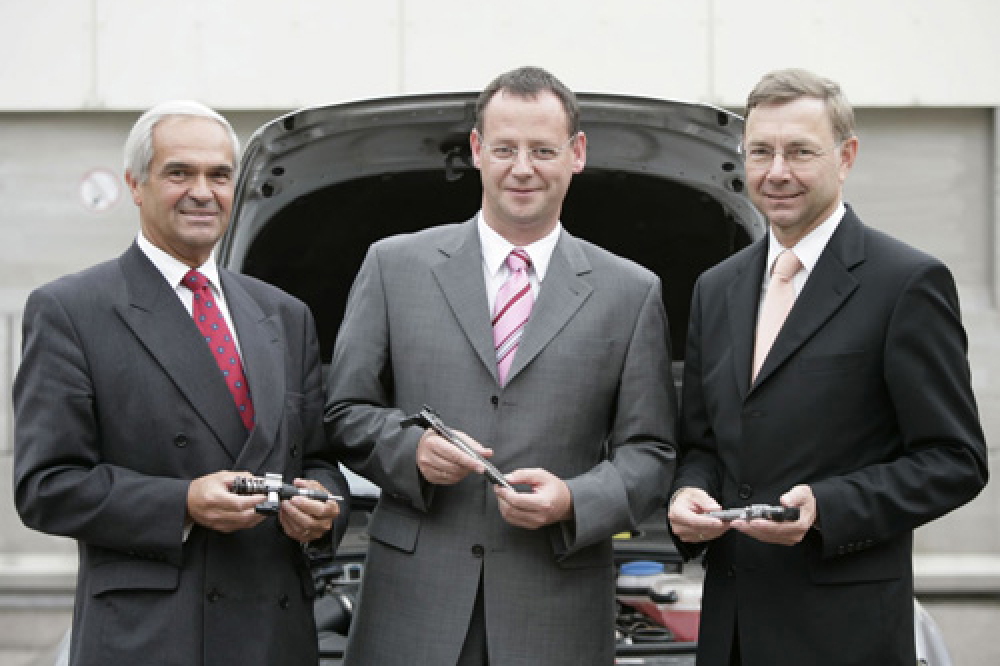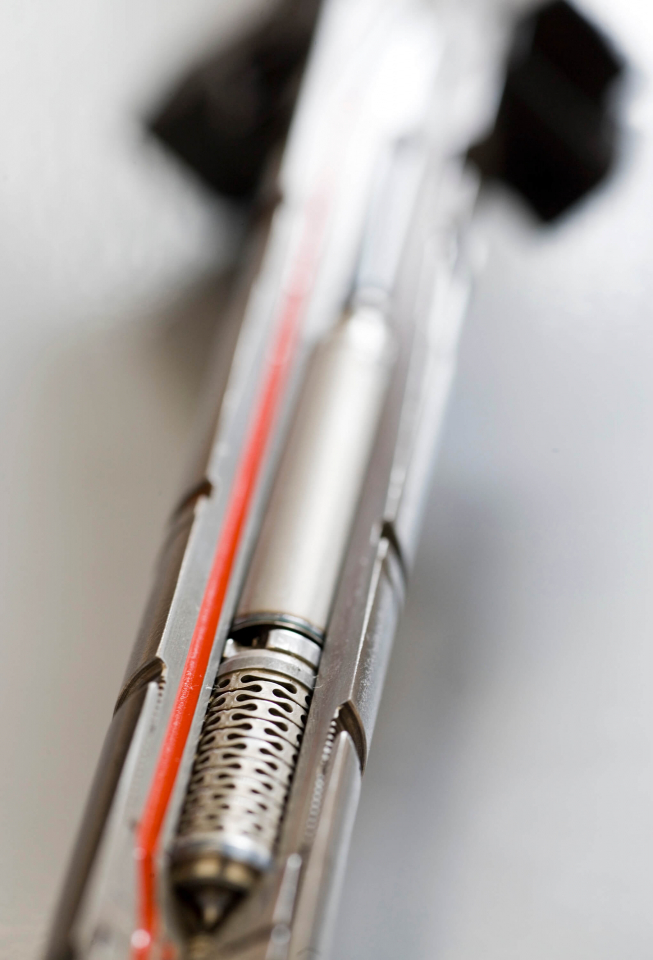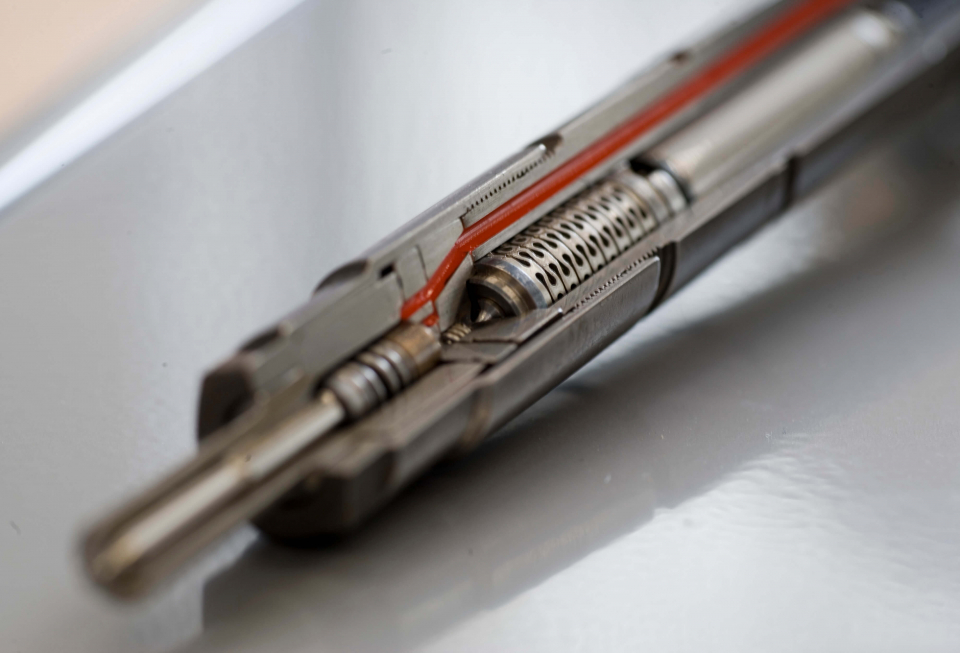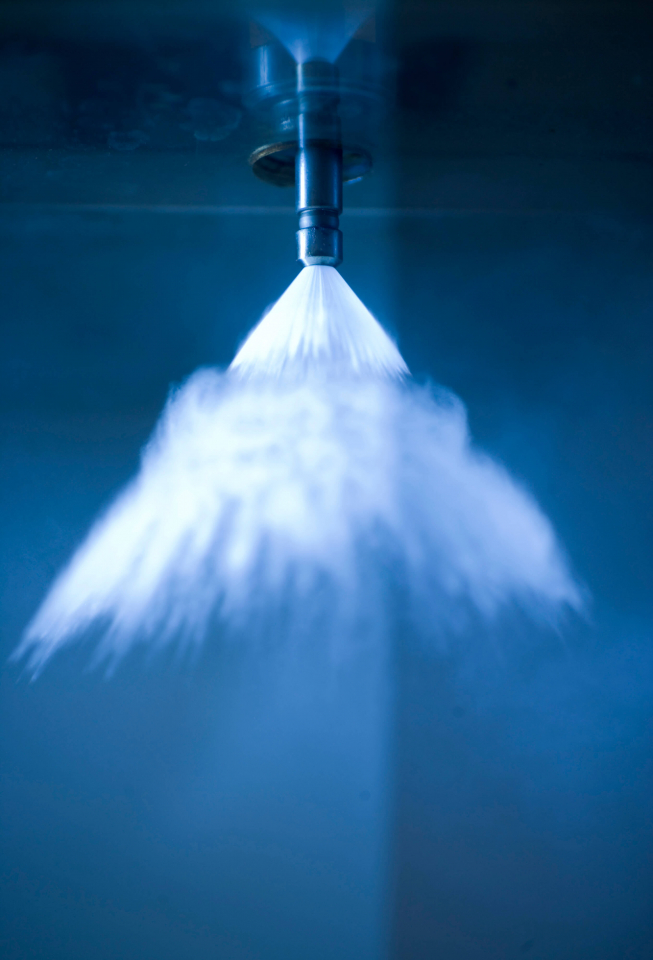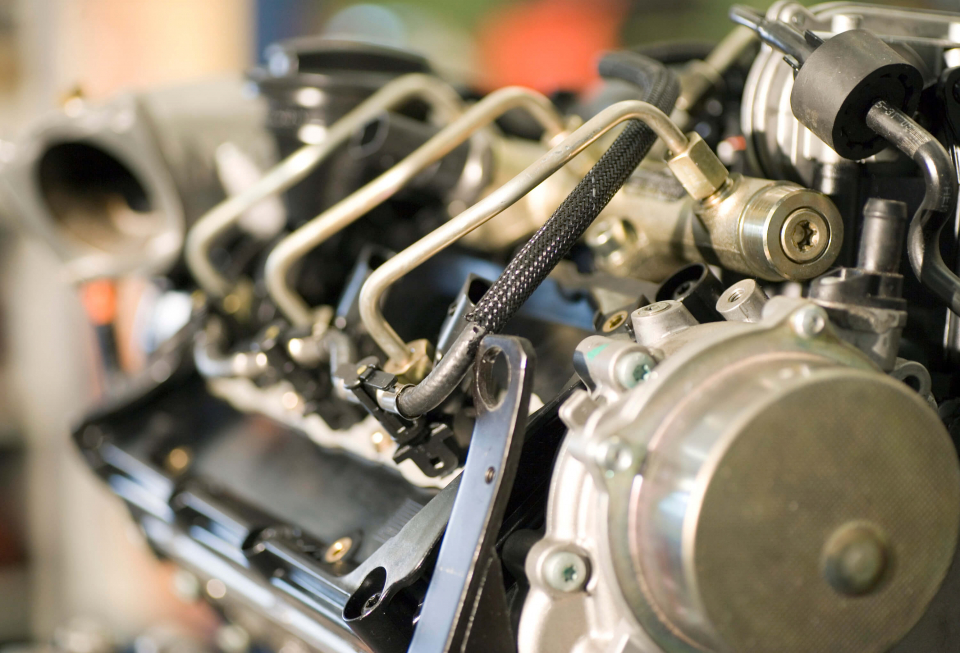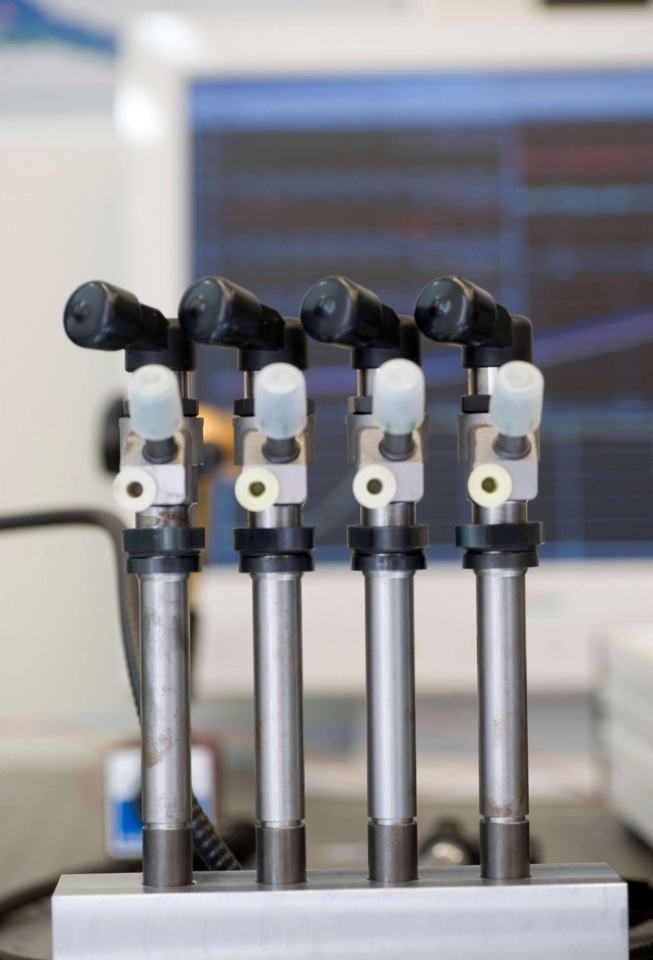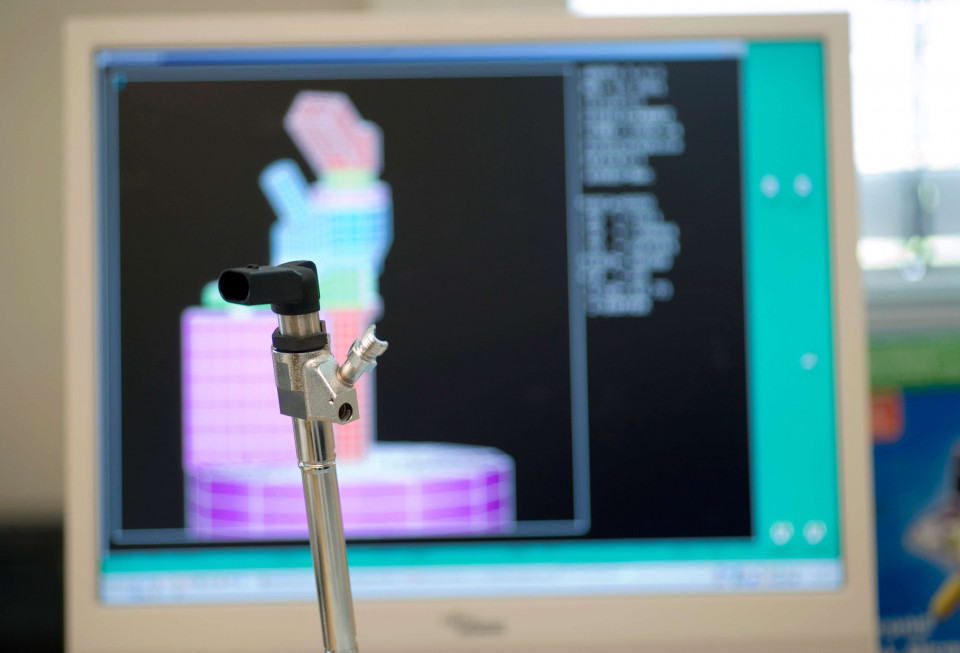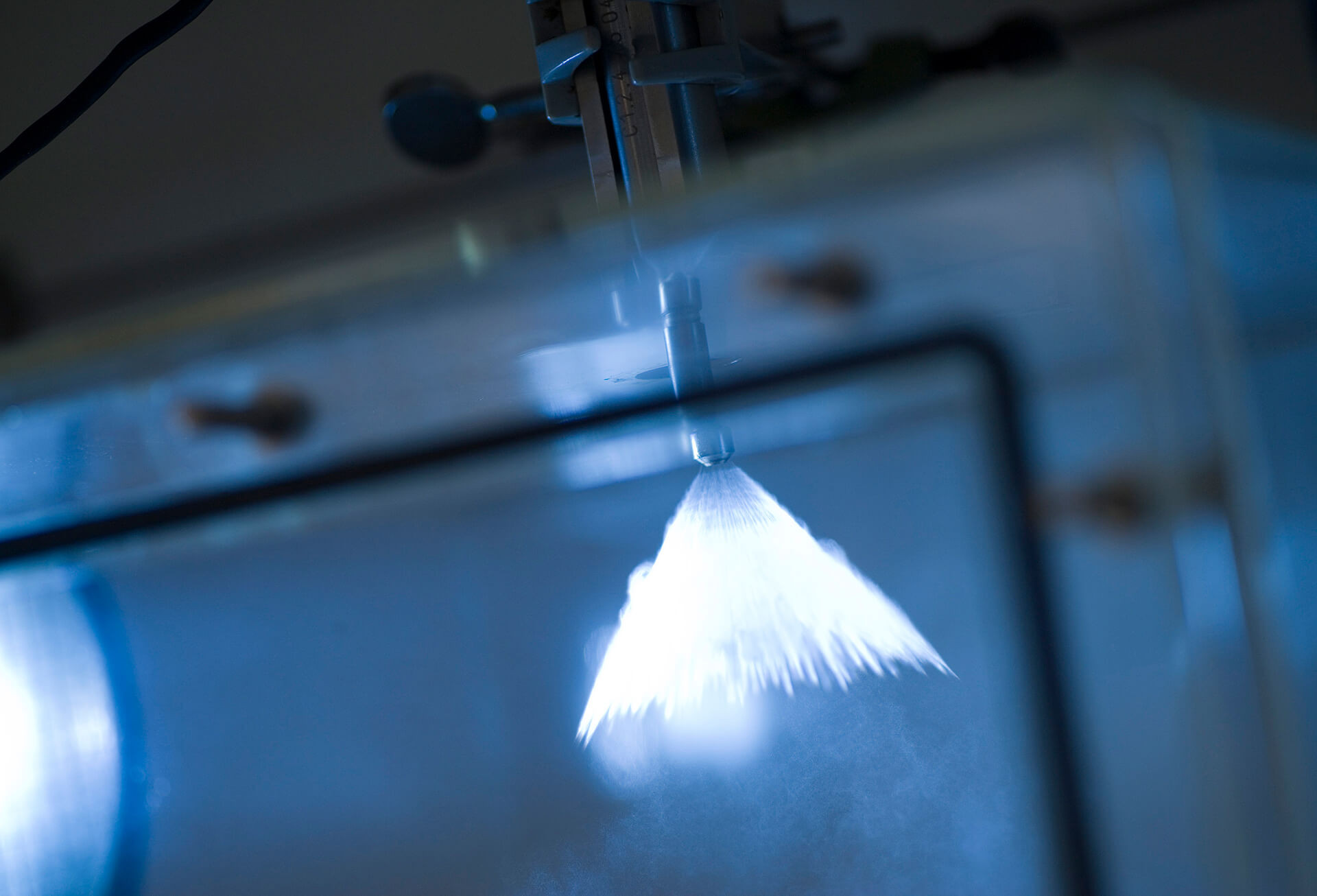
Winner 2005
Piezo-Injektoren
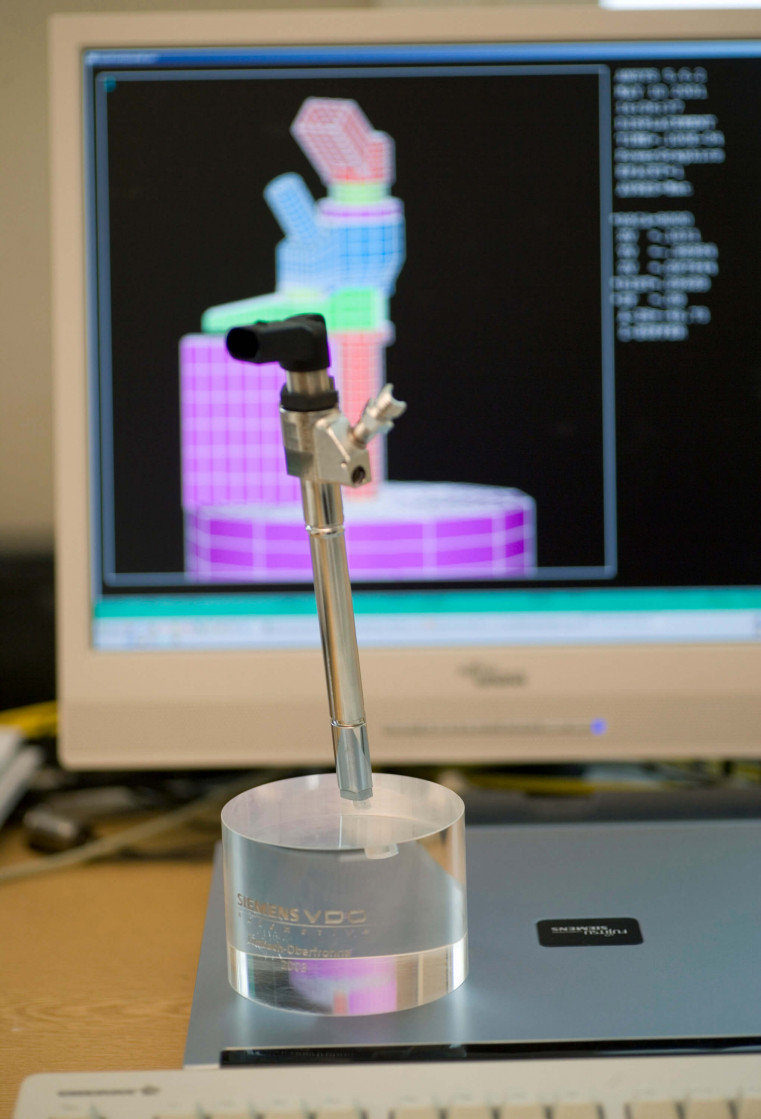
The key to success is in a highly precise injection of fuel. This is an area in which Friedrich Boecking, Klaus Egger, and Hans Meixner have set new standards. The three nominated researchers work at suppliers to the automotive industry – although at two directly competing companies: Friedrich Boecking heads the development division Common Rail Injectors Car at the Stuttgart firm Robert Bosch GmbH, Klaus Egger is a member of the board at Siemens VDO Automotive AG in Regensburg, and Hans Meixner is an authorized agent of the department for sensor and actuator technology (ZT) at Siemens Research in Munich.
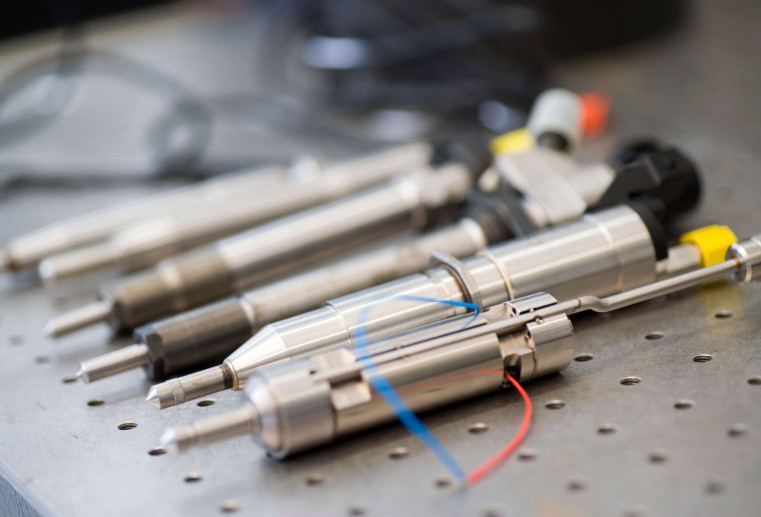
Pressure and dosage are decisive
Approximately one in two vehicles registered in Germany in 2004 runs on diesel fuel. Diesel vehicles owe their popularity above all to direct fuel injection. It makes engines efficient and quiet – and provides economical fuel consumption.
more details
Resumes
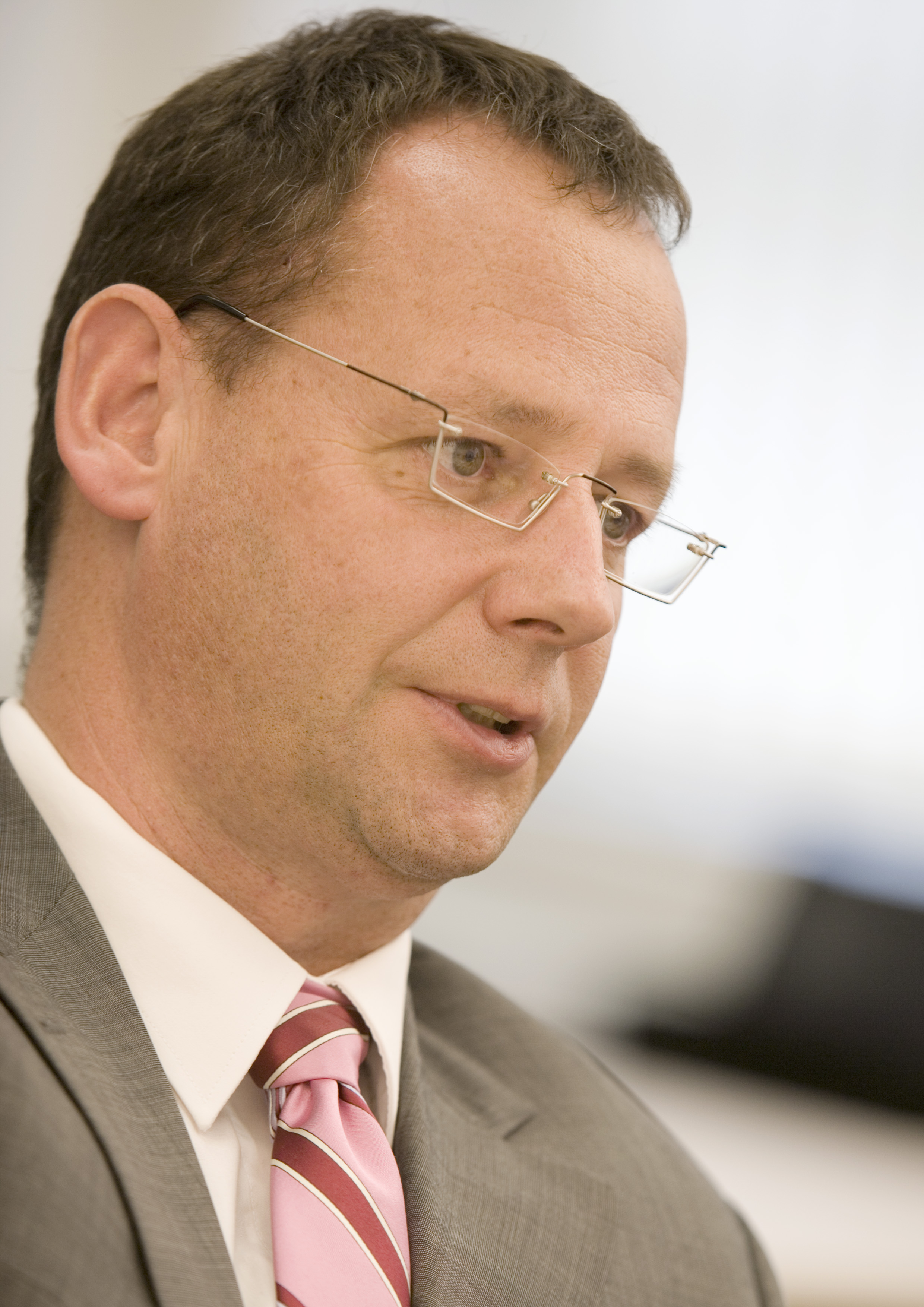
Dipl.-Ing. Friedrich Boecking
- 08.06.1961
- geboren in Trier
- 1989 – 1995
- Studium des Maschinenbaus an der Technischen
Hochschule Karlsruhe - 1989 – 1995
- Entwickler von Düsen und DHK bei der
Robert Bosch GmbH, Stuttgart - 1995 – 1998
- Leitung Forschungsprojekt Einspritzverlaufsformung von
Dieseleinspritzinjektoren mittels Piezo-Aktoren bei der
Robert Bosch GmbH, Stuttgart
- 1998 – 2003
- Abteilungsleitung Entwicklung Piezo-Injektoren
bei der Robert Bosch GmbH, Stuttgart - seit 2003
- Entwicklungsbereichsleiter Common-Rail-Injektoren Pkw,
Entwicklungsverantwortung für Common-Rail-Injektoraktivitäten
Pkw bei der Robert Bosch GmbH, Stuttgart
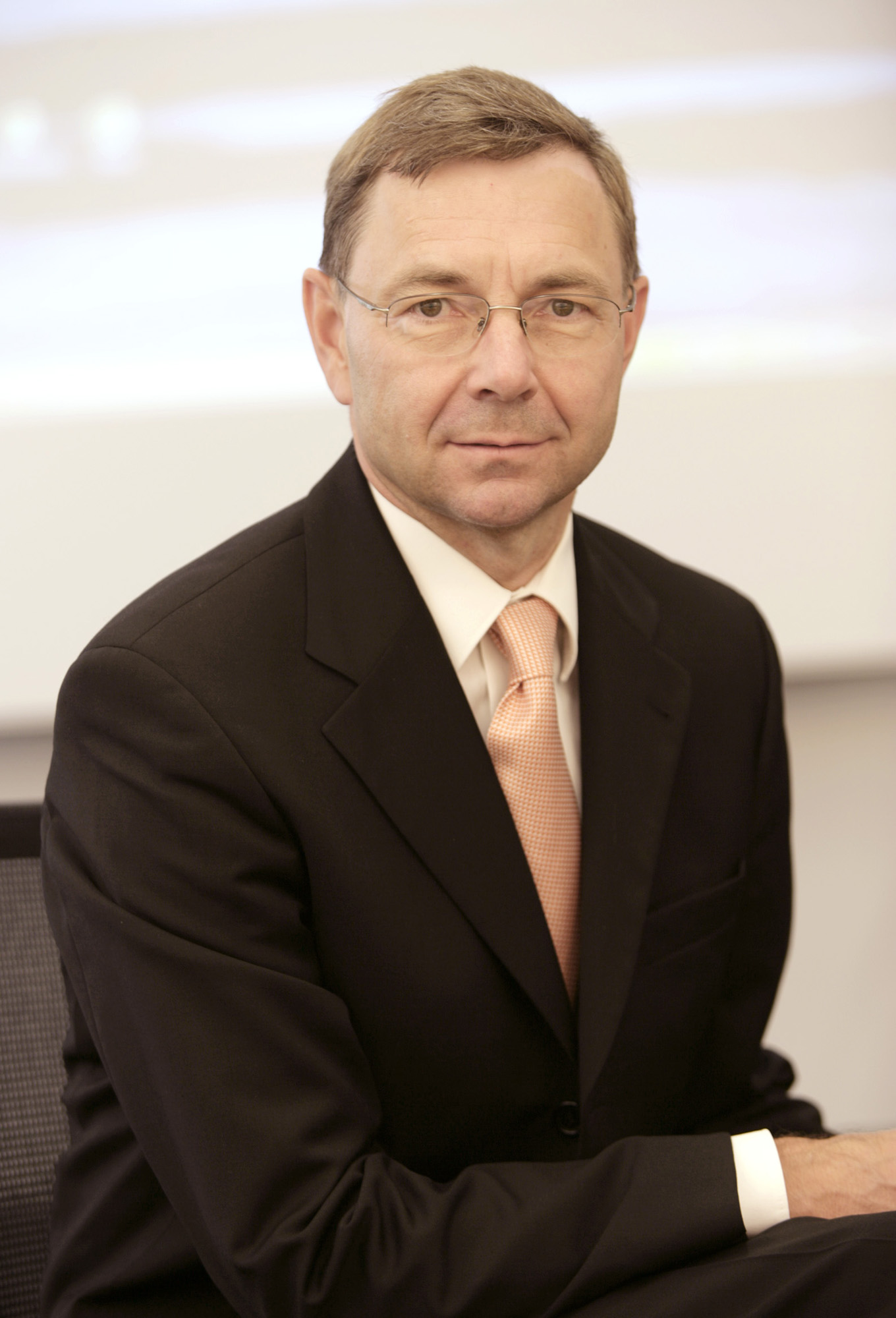
Dr.-Ing. Klaus Egger
- 22.06.1951
- geboren in Graz / Österreich
- 1969 – 1975
- Studium des Maschinenbaus an der Technischen
Universität Graz - 1976
- Institut für Verbrennungskraftmaschinen, Technische
Universität Graz - 1976
- Promotion
- 1975 – 1978
- Assistent an der Technischen Universität Graz
- 1978 – 1980
- Ingenieur in der M1-Motorenentwicklung bei der
AVL LIST GmbH, Graz
- 1980 – 1982
- Gruppenleiter Einspritzung, Vorentwicklung bei der
BMW Motoren GmbH, Steyr - 1982 – 1983
- Abteilungsleiter Einspritzung, Vorentwicklung bei der
BMW Motoren GmbH, Steyr - 1983 – 1984
- Entwicklungsleiter bei der Voest-Alpine Friedmann GmbH,
Linz - 1984 – 1990
- Geschäftsführer bei der Voest-Alpine Automotive GmbH,
Linz und Wien - 1990 – 1994
- Geschäftsführer des Bereichs Dieseleinspritzausrüstung
bei der Robert Bosch AG, Wien - 1994 – 1995
- Leiter Systembereich Common Rail bei der Robert Bosch
GmbH, Stuttgart - 1996
- Leiter des Bereichs Automobiltechnik, Referat Zentrale
Technik, Strategische Planung bei der Siemens AG,
Regensburg - 1996 – 1998
- Leiter Geschäftszweig Dieselsysteme bei der
Siemens AG, Regensburg - 1998 – 2001
- Leiter Geschäftsgebiet Antriebsstrang bei der
Siemens AG, Regensburg - seit 2001
- Vorstandsmitglied der Siemens VDO Automotive AG, Regensburg
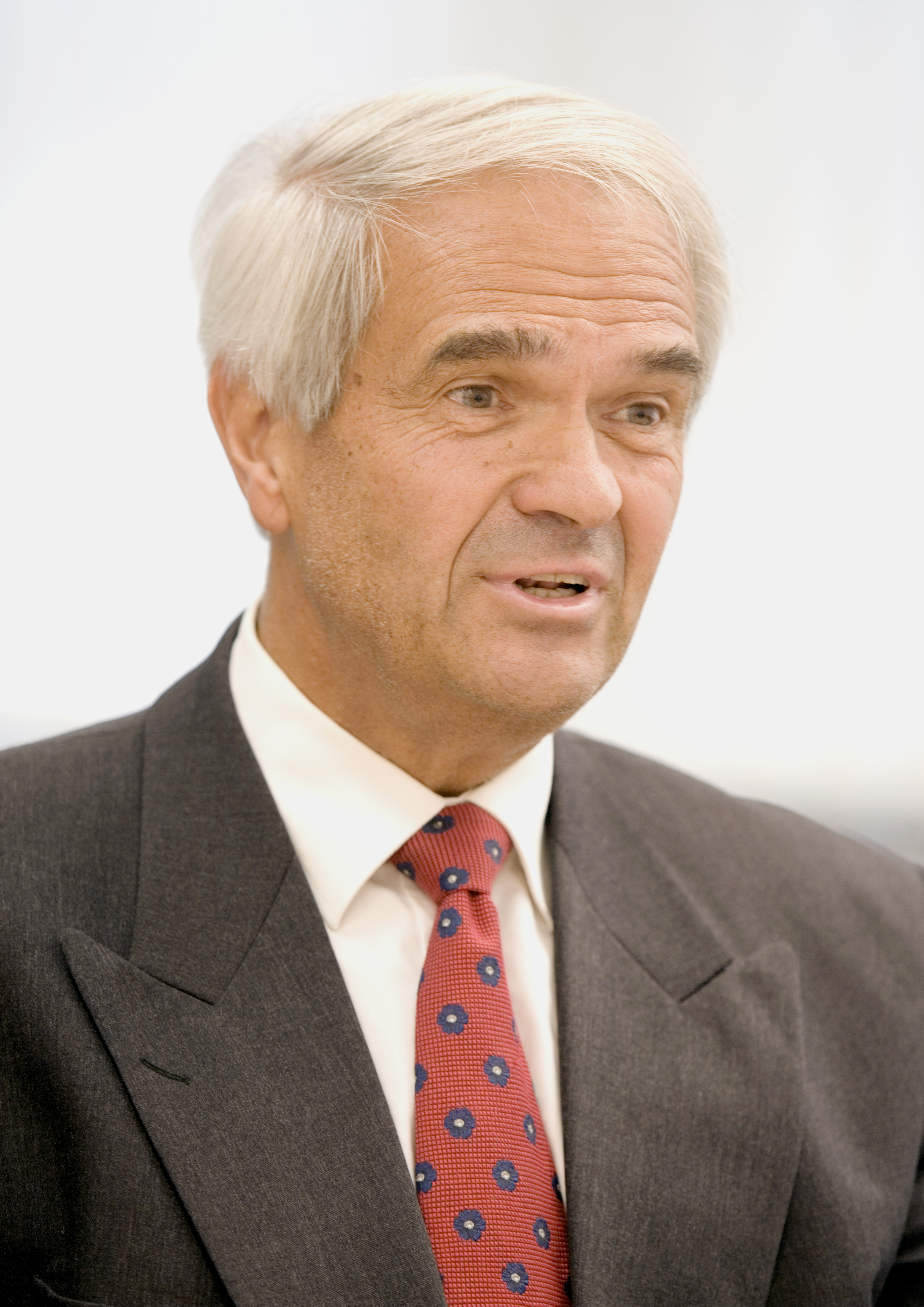
Prof. Dr. rer. nat. Hans Meixner
- 06.10.1939
- geboren in Marl / NRW
- 1961 – 1970
- Studium der Chemie, Mathematik und Physik an der
Universität Hamburg und der Technischen Universität
München - 1970
- Doktorand am Physik Department der Technischen
Universität München - 1970 – 1972
- Tutor am Mathematischen Institut der Ludwig-Maximilians-
Universität München - 1972
- Promotion
- 1972 – 1973
- Wissenschaftlicher Assistent am Physik Department der
Technischen Universität München - 1973 – 1980
- Angestellter in der Zentralen Forschung und Entwicklung
bei der Siemens AG, München - 1980 – 1985
- Laborleiter für Anwendungstechniken, Bereich ZT,
Forschung bei der Siemens AG, München - 1985 – 1991
- Gruppenbevollmächtigter Bereich ZT, Forschung
bei der Siemens AG, München - 1991 – 1992
- Unterschriftsberechtigung i.V. Bereich ZT, Forschung
bei der Siemens AG, München - 1992
- Leiter der Kerntechnologie: Sensorik, Mess-, Steuer- und
Regelungstechnik Bereich ZT, Forschung bei der Siemens
AG, München - seit 1992
- Abteilungsbevollmächtigter für Sensor- und Aktuatortechnik
Bereich ZT, Forschung bei der Siemens AG, München
Weitere Tätigkeiten:
- Industrial Advisory Board Member of Berkeley Sensor and Actuator Center,University of California
Editorial Board Member of Institute of Physics Publishing, UK
Kurator der Fraunhofer-Gesellschaft
Beirat des Forschungszentrums Karlsruhe
Beirat Linz Center of Mechatronics GmbH
Beirat EnOcean
Beirat First Sensor
Mitglied der Programm- und Steering Committees:
European Material Research Society
Eurosensors
Chemical Sensors
Sensortagung Bad Nauheim/Ludwigsburg des Arbeitsausschusses
„Chemische Grundlagen und Anwendungen der Sensortechnik“
in der Dechema
Vorsitzender des Arbeitsausschusses „ADAPTRONIC“ des VDI
(Physikalische Technologien)
Vorstand bei Anakon
Contact
Spokesperson
Dipl.-Ing. Friedrich Boecking
Entwicklungsbereichsleiter Common-Rail-Injektoren Pkw
Robert Bosch GmbH
Wernerstr. 51
70469 Stuttgart
Tel.: +49 (0) 711 / 81 14 51 52
E-Mail: friedrich.boecking@bosch.de
Press
Thomas Knoll
Media and Public Relations Kraftfahrzeugtechnik
Robert Bosch GmbH
Wernerstr. 51
70469 Stuttgart
Tel.: +49 (0) 711 / 81 17 088
Fax: +49 (0) 711 / 81 17 656
E-Mail: thomas.knoll@bosch.com
Johannes Winterhagen
Corporate Communications
Siemens VDO Automotive AG
Sodener Str. 9
65824 Schwalbach
Tel.: +49 (0) 6196 / 87 23 48
Fax: +49 (0) 6196 / 87 41 94
E-Mail: johannes.winterhagen@siemens.com
A description provided by the institutes and companies regarding their nominated projects
Vehicles with diesel engines are becoming ever more popular. They are low on fuel consumption and much cleaner than cars with spontaneous ignition from earlier years of manufacture.
What is behind this incredible progress in diesel engines?
The key to success is in a highly precise injection of fuel. This is an area in which Friedrich Boecking, Klaus Egger, and Hans Meixner have set new standards. The three nominated researchers work at suppliers to the automotive industry – although at two directly competing companies: Friedrich Boecking heads the development division Common Rail Injectors Car at the Stuttgart firm Robert Bosch GmbH, Klaus Egger is a member of the board at Siemens VDO Automotive AG in Regensburg, and Hans Meixner is an authorized agent of the department for sensor and actuator technology (ZT) at Siemens Research in Munich.
Pressure and dosage are decisive
Approximately one in two vehicles registered in Germany in 2004 runs on diesel fuel. Diesel vehicles owe their popularity above all to direct fuel injection. It makes engines efficient and quiet – and provides economical fuel consumption. In direct injection systems, a pump pressurizes the fuel and injects it through an injection valve into the cylinder’s combustion chamber. The higher the pressure and more precise the injection time and quantity, the more efficient combustion is.
The piezo injectors developed independently by research and development teams both at Bosch and Siemens VDO are especially precise. In these valves, regulators open and shut the fuel injectors making use of the piezo electric effect that occurs in certain crystalline materials: If an current is applied to them, the material yields instantaneously. This produces forces which can be exploited to control fuel injection.
High speed provides precision
The advantage of piezo technology: it opens and closes the injection value up to five times as fast as conventional solenoid valves. This improves metering accuracy, thereby producing fewer pollutants during fuel combustion and reducing nitrous oxide emissions by up to 20 percent. The same is true for the particulate matter found in diesel exhaust. Fuel consumption drops, and the engine runs quiet.
Boecking, Eggert, and Meixner had great market success with the development of the piezo electric injectors. The first injectors went into production in 2000. By the end of 2006, Bosch and Siemens VDO had together manufactured around 25 million units. For manufacture of the injectors alone, the two companies employ around 14,000 people worldwide, 6,400 of them in Germany.
The right to nominate outstanding achievements for the German Future Award is incumbent on leading German institutions in Science and Industry as well as foundations.
The Project „Piezo injectors: A new technologyfor clean diesel and gasoline engines“ was nominated by the Stiftung Werner-von-Siemens-Ring .
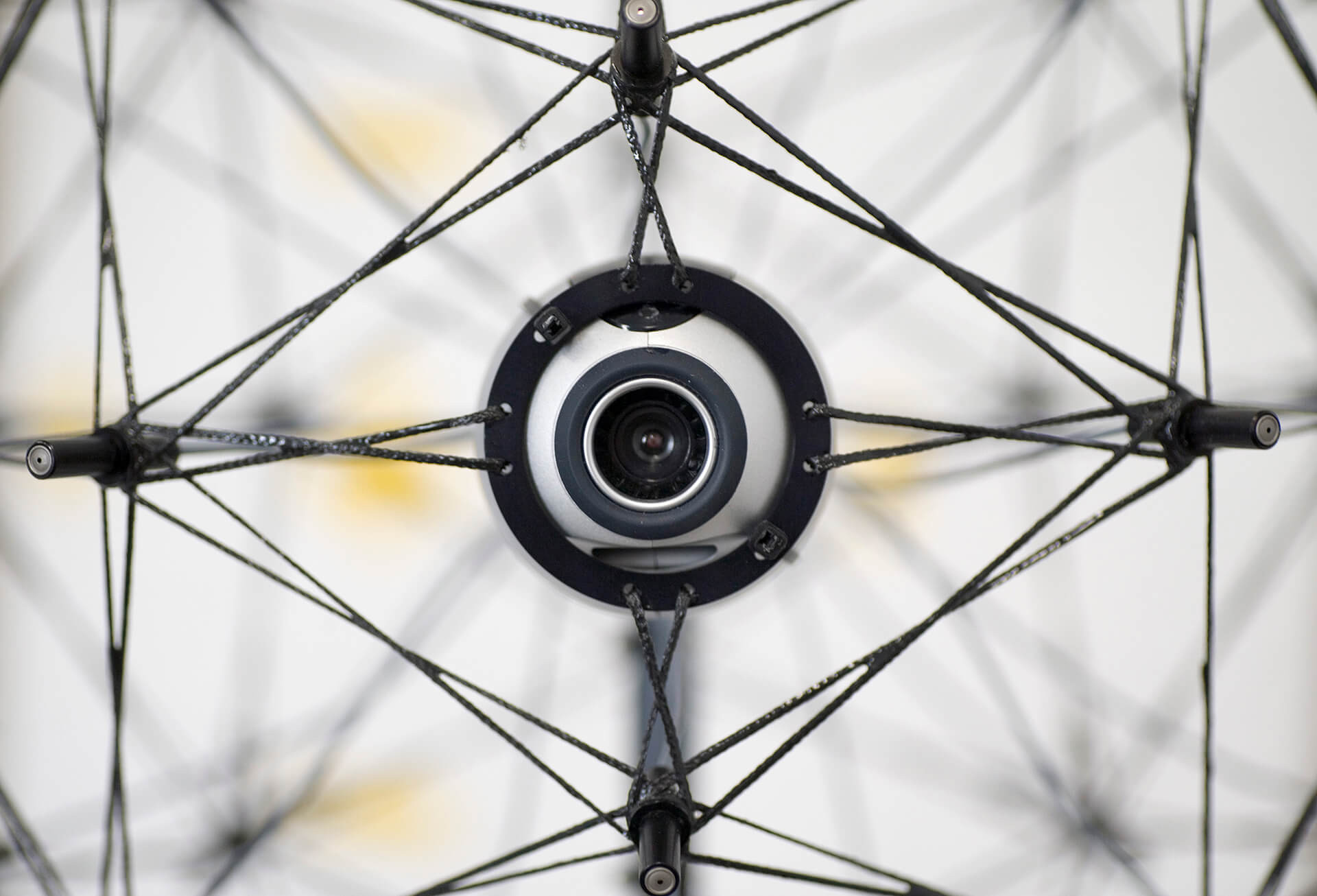

 Gebärdensprache
Gebärdensprache
 Leichte Sprache
Leichte Sprache


